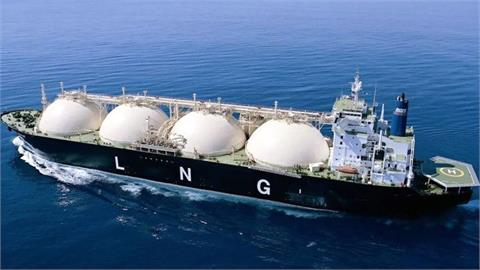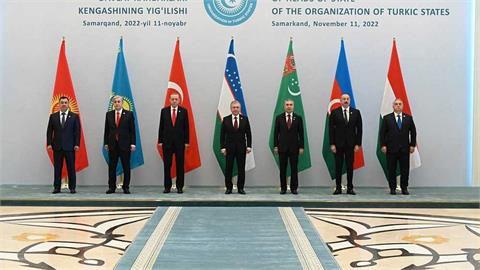New evidence has emerged of China's interest in exploiting Antarctica's minerals despite an international agreement preventing it.
It is thought the icy continent has abundant supplies of oil, gas, coal and iron ore.
An emerging polar power, China has a growing scientific program. It has increased the number of its research stations and has started building a new icebreaker.
A signatory to the Madrid Protocol which banned any mining activity until 2048, president Xi Jinping re-affirmed that commitment in a memorandum of understanding signed in Hobart after the G20 summit in November.
After the signing, Environment Minister Greg Hunt denied China had any interest in overturning the mining ban.
"They themselves really wanted to drive into the heart of the agreement, the Antarctic Treaty, the non-militarisation of the area and the protection against mining," he said.
But Professor Anne-Marie Brady, a political scientist from the University of Canterbury, has written a forthcoming book — China as a Polar Great Power — containing information that contradicts that stance.
"I've been researching Chinese polar interests since 2008 and the Chinese language materials are very, very clear about China's interest in Antarctic minerals," Professor Brady told the ABC's 7.30 program.
"It's a resource, a global resource from their point of view that has the potential to be exploited, notwithstanding the restrictions on it at the moment as part of the Antarctic Treaty," she said.
The material included a 2005 report by senior and former members of the Polar Research Institute of China, the body responsible for coordinating Antarctic research.
It said the rich resources, which included oil, gas and minerals, were the main reason for Antarctic expeditions and that exploitation was just "a matter of time".
Authors Zhu Jiangang, Yan Qide and Ling Xiaoliang listed the main barriers to mineral exploitation.
China wants Antarctic share to support its 'one billion population'
They included difficulties operating in the Antarctic environment, the fact resources in other areas of the world were not exhausted and the environmental damage that would be caused by the current technology available to exploit the resources.
The authors mentioned as an aside that if China began mineral exploration it would breach the Madrid Protocol.
Another 2013 report for the Chinese Arctic and Antarctic Administration obtained from a confidential source said: "Regardless of how the spoils are divided up, China must have a share of Antarctic mineral resources to ensure the survival and development of its one billion population."
Professor Brady said Chinese sources showed a suspicion that other countries were covertly interested in Antarctica's resources and alleged some may be covertly prospecting.
"They believe that a lot of the scientific research in Antarctica is a disguised form of presence that many countries in Antarctica are occupying bases not to pursue scientific questions but to invest in long-term strategic interests including potential access to any resources that may be discovered."
Official Chinese website showed location of mineral resources
During earlier research Professor Brady discovered a map of Antarctica's mineral resources on an official Chinese website but after she revealed its existence, the map was swiftly removed.
"The map was up there as part of information for preparing Chinese scientists going down to Antarctica," Professor Brady said.
"The map was taken down, presumably by the Polar Institute of China, because it sends a really obvious signal that China is clearly interested in Antarctic mineral resources."
However some who worked closely with Chinese scientists, including Professor Tony Worby from the Antarctic Climate Systems & Cooperative Research Centre, remained unconvinced.
"I'm certainly well aware that those views exist," Professor Worby told 7.30.
"My own view is that China's presence in Antarctica is very largely driven by their desire to have a sense of national pride.
"The Chinese also understand the currency of credibility in the Antarctic Treaty system is very much about the strength of your science program."
Australia must not adopt 'she'll be right mate' mentality
Nick Rowley, a former senior adviser to Tony Blair, said he was concerned that Australia was not taking the threat to the future protection of the pristine continent seriously.
"You've got to be very, very careful of an Australian's 'she'll be right mentality'," Mr Rowley said.
Russia, India and Iran have also expressed interest in Antarctica's minerals and there could be a new polar bloc that eventually pushes for change.
"Does Australia have skin in the game? Absolutely it does. It's a major player in terms of the future of Antarctica," Mr Rowley said.
"When the geopolitics and the political and economic interests change I would back that over any rules under the Antarctic Treaty."
Mr Rowley believed the main motivation for the Chinese presidential visit to Antarctica was not improving scientific ties, but future energy security.
"He was, as all Chinese leaders do, thinking about the longer term," he said.
"They absolutely need to be a player as it becomes easier to exploit the resources that may well be there in Antarctica."
Professor Brady believed China was only in the early stages of its mineral research, but she believed Australia needed to show global leadership on the issue.
"If Australia is serious about being opposed to accepting any form of mineral exploitation from China then Australia should take that kind of preliminary research quite seriously," she said.
"It should do what it can do to promote ideas about Antarctica as a wilderness that should be protected for the whole world."
China has commitment to environmental protection: Hunt
Mr Hunt said Australia and China have cooperated closely in Antarctica since Australia helped to facilitate China's first visits to east Antarctica 30 years ago.
"The Memorandum of Understanding on Antarctic Cooperation signed during the Chinese president's November 2014 visit to Hobart reaffirms both countries' enduring commitment to the peaceful use and environmental protection of Antarctica," Mr Hunt said in a statement.
"This was very significant as it re-commits China to the principles of the Antarctic Treaty which includes no mining.
"Greater international engagement and cooperation in Antarctica strengthen the Antarctic Treaty system, which provides a unique and highly effective international agreement for the governance of Antarctica.
"Australia is committed to maintaining its position as a leading Antarctic nation and strong supporter of the Antarctic Treaty system, including its protocol on environmental protection ... which unambiguously and indefinitely bans 'any activity relating to mineral resources, other than scientific research'."
The Chinese embassy was contacted for comment but did not respond.
(au.news.yahoo.com/)



